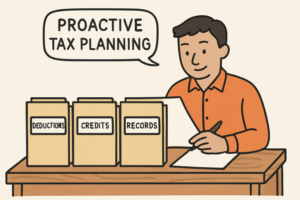Top 10 Things You Need To Know About Online Reputation Management
Your reputation is one of the most important things you need to keep in a tip-top condition if you are to survive as an entrepreneur online. With almost everyone using the internet to either sell services and products or shop for the same, it is essential that entrepreneurs and businesses maintain a good reputation to make it in the online world. Knowing you cannot satisfy everyone in this world, keeping a stellar reputation in the online world can be quite a daunting task.
Online reputation managers however help deal with negative publicity as well as help you master the tricks of avoiding conflict online or staining your otherwise good reputation. Discussed below are ten most important things you need to know about online reputation management.

1. Fool-Proof Branding Is Important
There is more to branding than promoting your company name. Fool-proof branding enables any company to go beyond having a name but also relating to their target audience and loyal customers. Proper branding is therefore crucial if you are to make a name for yourself in the online community.
In addition to this, loyal customers who relate with your company will be able to come in your defense should someone try to slander you in any way. A good example of fool-proof branding is with the big giant companies in the industry. These companies have a stable and unshakable reputation that very few can take on.
2. The Social Media Is Very Important for Your Reputation
It is crucial that you maintain a strong social media network for all your online endeavors. A solid online reputation goes hand in hand with a strong presence in social media, and particularly Google, Facebook, Twitter, Instagram, and LinkedIn, to name but a few.
The social media will give you a strong audience base, as well as a point of interaction with your target and existing customers. As long as you do relate well with everyone (including critics) on social media, then chances of staining your reputation online are significantly reduced.
3. Bad and Negative Reviews Can Affect Client Retention
Negative publicity can have a tremendous effect on your client retention and reputation in general. Even a single negative review or testimonial about your brand can shake several clients making them second-guess your authenticity and trustworthiness.
It is therefore advisable to deal with such negative reviews head on, and ensure the issue is resolved amicably to avoid attraction unwanted attention. Although reputation managers will try to remove most negative comments on your profile, finding a way to prevent such in the first place is the best way to approach these.
4. Erasing Negative Reviews Isn’t Always the Solution
There are instances when clients will be dissatisfied with your service delivery or products. This is absolutely normal unless it becomes a habit. Although erasing some of these negative reviews may seem right, it is sometimes best to work towards building a solid reputation. This however means working harder to ensure most, if not all, customers get quality service and are satisfied. Even if a few negative reviews do exist, they will be choked up by the numerous positive ones.
5. Blogs Can Help Build Your Reputation
Having blogs written about your products and services, as well as tips to help the client make a more informed decision in the future can have a positive impact on your reputation. You can also use these blogs to update audiences of latest happenings and gigs as a way to attract their attention hence win your trust.
This channel is commonly preferred for it helps build an emotional lane and a sense of connection with the audiences. As more and more people get to read your blogs, they also get acquainted with your brand hence can trust what you have to offer.
6. Avoid Online Arguments
Taking part in discussions and conversations online is healthy for your reputation. Arguments should however be avoided at all costs for they only put a stain on your reputation. Some cases can turn out nasty tarnishing not only your image but also making some of your die-hard followers and customers start second-guessing their support for you. Whether popular online or not, it would be best to focus on what makes your audience happy, and not trying to prove a point in an argument.
7. Learn to Say Sorry
We all make mistakes. Learning to apologize once a mistake is done is however the smart way to maintain a good reputation with your customers and audiences. Although a simple word, apologizing shows that you indeed care about other people’s feelings, hence increases your credibility and popularity with your audience. Saying you are sorry for a mistake you did, can also help woo more people into trusting your brand in the long run. Many people want to relate to individuals that show that they care.
8. Reputation Management is an Ongoing Effort
There is more to maintaining a good reputation than merely removing a negative comment or incriminating information here and there. The only way audiences, as well as search engines, will show interest in your brand and uphold it is if you give them something new. In other words, you need to be proactive in all what you do to maintain a good reputation.
9. Keep Track of Your Information Online
As mentioned earlier, you need to keep track of everything you do online, and all the information there is about your brand. One of the best ways to do this is by tracking data about the brand, as well as building your profile with positive intentions and reviews. Tracking information is relatively today thanks to the various systems in place that help with the same. Not sure how to track and remove negative results, you can learn more here.
10. Respect Other People as Well
Learn to show respect to other people’s opinions, and other businesses as well. Showing respect to all these is one of the best ways to avoid a tug of war between you and them. As long as other brands do not have anything against you, you can then focus on building your brand and empire as well. One thing you also need to know about online reputation management is that you have to give to receive the same.
Online reputation management is an ongoing process that demands time and patience. When done properly, the benefits and yields from the same can be overwhelming. While you may be able to handle all these processes yourself, you are sometimes in a much better position having online reputation management professionals handle all these.




